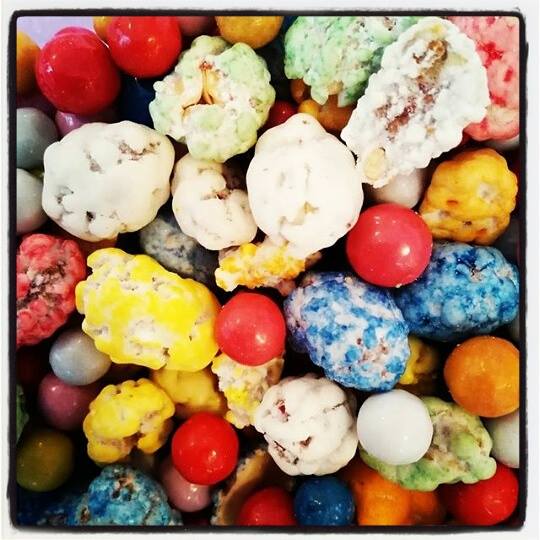The best Hungarian candies ever

Hungarians can be proud of their delicious and diverse gastronomy, especially the unique desserts. However, the sweets and candies that can be bought in every store rarely get the attention they rightfully deserve. There are more to Hungarian sweets than the delicious Túró Rudi. Here is a list of the best Hungarian candies that you definitely will not regret trying.
1. Dunakavics – Danube stones
Danube stonesPhoto: facebook.com/Csokibolt
These small, colourful pieces of candy incite nostalgic feelings in most Hungarians. Dunakavics has been on the market since 1964, and its signature blue packaging has not changed ever since, making the connections and childhood associations even stronger.
The name of the candy is not surprising once you have seen the product itself. Danube stones are chocolate-covered peanuts that have an outer layer of colourful sugarcoating. Their rough and irregular shapes resemble small stones, explaining the origin of the name. As for the connection to the Danube, the fact that the candy was produced by the Danube Chocolate Factory up until the 1990s, thus giving its name, is only one of the theories.
2. Franciadrazsé – French dragée
French dragéePhoto: facebook.com/bonbonetticsoki
This delicious candy’s history began the same time as the Danube stones’, in 1964, with the Danube Chocolate Factory. Its name contains the French ‘dragée’ word, meaning chocolate-covered almonds. However, the Hungarian version got rid of the almonds and only left the chocolate covered with smooth colourful sugarcoating, resembling tiny pearls. Their fun-looking outside and yummy insides make them an all-time children’s favourite. Not to mention its never-changing red packaging that only adds to the retro feeling.
3. Macskanyelv – Cat tongue
Cat tonguePhoto: facebook.com/ChristisChoco
This candy also bears a very telling name. It is a stick of chocolate that widens at each end, resembling a cat’s tongue. It can be made from white, dark or milk chocolate and was first produced by Emil Gerbaud, the Hungarian confectioner with Swiss origins, around 1892. He made the sweets famous not just in Hungary but all over Europe. Nowadays, they are well-known and loved even in Japan. In other countries, for example in England, a slightly different, more biscuity version exists.
4. Cognac sour cherry
Cognac sour cherryPhoto facebook.com – Bonbon mánia
The chocolatey-alcoholic perfection is also linked to Emil Gerbaud. He was the first to perfect the technique of covering a whole sour cherry preserved in alcohol with chocolate. These three simple ingredients put together create the perfect dessert that is creamy and soft on the inside while firm and crisp on the outside. While there have been new twists and additions to the original ingredients over the years, the core of the dessert remains the blending of the slight bitterness of the chocolate, the sourness of the sour cherry and the sweetness of the alcoholic filling.
5. Negró
Negró candiesPhoto: facebook.com – Negro cukor
Upon first hearing about this candy, the direct associations can be rather unfavourable. However, the race actually has nothing to do with the naming of this candy, as it got its name from Pietro Negro, the person who invented it. At the beginning of the 1920s, the candy was produced from the by-products of a different type of sweets. However, the exact ingredients necessary for its making have remained an industrial secret. But an evident liquorice-like taste can be detected in the trademark black-coloured version of the candy that is also often called ‘the chimney sweep of the throat’. Other popular flavours are the yellow honey-menthol, the red raspberry-menthol or the green eucalyptus-menthol tasting candies.
Featured image: facebook.com/bonbonetticsoki
Source: magyarbrands.hu, nosalty.hu, vous.hu, wikipedia.org, bonbonetti.hu

